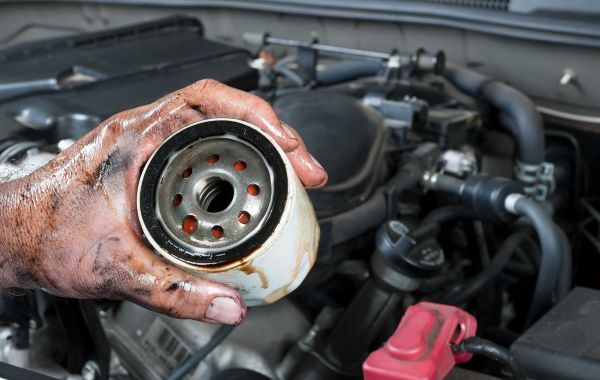The right choice of engine oil determines how long and trouble-free the engine of your car will last.
The assortment of oils available on sale is very large and can confuse the inexperienced motorist. Even experienced drivers sometimes make mistakes, trying to choose something better.
You should not give in to compulsive advertising, offering a universal solution for all problems at once. You should choose the grease which suits your engine, taking into consideration the operation conditions.
According to its chemical composition, engine oil is divided into three types: synthetic, semi-synthetic and mineral.
Synthetic
Synthetic motor oil is produced by organic synthesis. Feedstock is usually refined and thoroughly purified petroleum products. Can be used for all types of engines.
It is highly oxidation-resistant and leaves almost no deposits on the parts of the engine as it runs out.
Synthetic lubricant maintains a stable viscosity over a wide temperature range and is considerably superior to mineral lubricant under severe operating conditions. Good penetration capability helps slow engine wear and facilitates cold starts.
The main disadvantage of synthetic oils is their high price. However, the need to use this particular lubricant does not arise often. Synthetics should be used in extreme cold (below -30°C), at the constant limits of the engine or when the low viscosity oil is recommended by the manufacturer of the unit. In other cases, it is quite possible to do with grease on a cheaper basis.
Keep in mind that switching from mineral to synthetic in older engines can cause leaks in the oil seals. The reason is in the cracks on the rubber gaskets, which are clogged with sediments while using mineral oil. Synthetics, on the other hand, intensively wash out dirt during operation, opening the way for oil leaks and clogging oil passages in the process.
In addition, the oil film created by synthetics is too thin and does not compensate for increased clearances. As a result, wear and tear on an old engine can accelerate even more
Therefore, if you already have a rather worn-out unit with mileage of 150,000 km and higher, it is better to refuse synthetic oil.
Semi-synthetic
Good for carburetor and injector engines, gasoline and diesel
Produced by mixing mineral and synthetic bases. The mineral part usually makes up about 70 %. High quality additives are added to its composition.
It is more expensive than mineral oil, but cheaper than pure synthetic. Semi-synthetic oil is more resistant to oxidation and delamination than a mineral oil. It has a high penetrating ability and slows down engine wear. It effectively removes dirt and deposits and provides corrosion protection.
Its disadvantages are bad withstand severe frost and extreme operating conditions.
Semi-synthetics can serve as an intermediate option, if you want to switch from mineral grease to synthetic. It is suitable for both new and worn power units.
Mineral
Suitable for vehicles with carburetor engines. Has a reasonable price due to its simple manufacturing technology. It has good lubricating properties, creates a stable oil film and gently cleans the engine from deposits.
Its main disadvantage is a significant increase in viscosity at low temperatures. Mineral oil has poor pumping properties in cold weather and makes cold starting very difficult. Thickened grease in insufficient quantity flows to the engine parts, which accelerates their wear. Mineral oil also performs poorly under high loads.
During operation at normal and elevated operating temperatures the additives burn out rather quickly, as a result the oil ages and needs to be replaced frequently.
In terms of price/quality ratio mineral engine oil will in many cases be the best choice, especially in regions with mild winters. The main thing is not to forget to change it in time.
Hydrocracking oils
In addition to the above three types, there is another relatively new invention - hydrocracking oils. In fact they are mineral oils, which by means of hydrocracking process have got properties that bring them closer to synthetic ones in quality.
Such grease, though inferior in performance characteristics to pure synthetic, but significantly cheaper.
The choice between mineral, synthetic and semi-synthetic is of great interest for car owners. However, automobile manufacturers rarely regulate this parameter.
Source: https://oilap.com/









